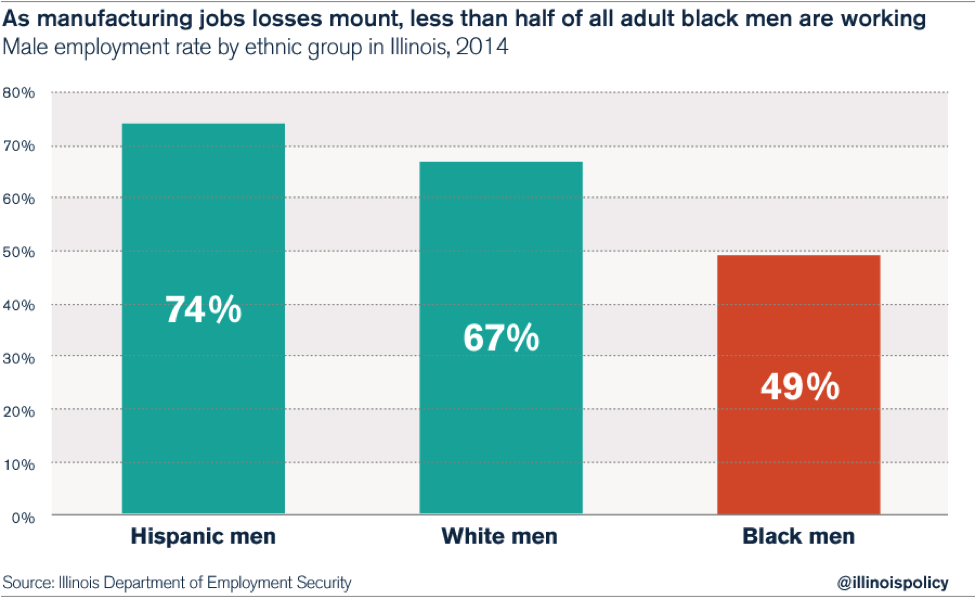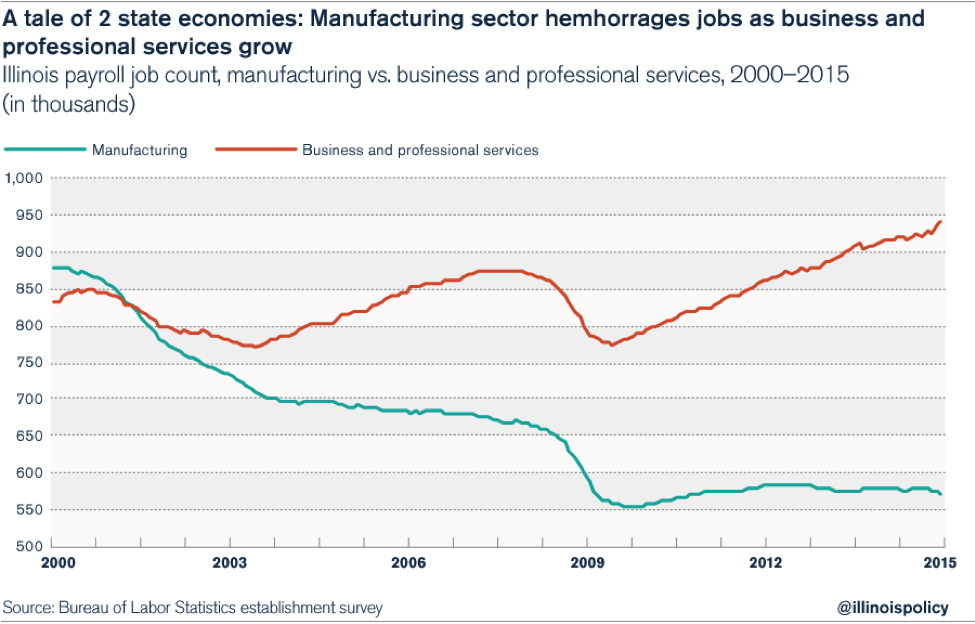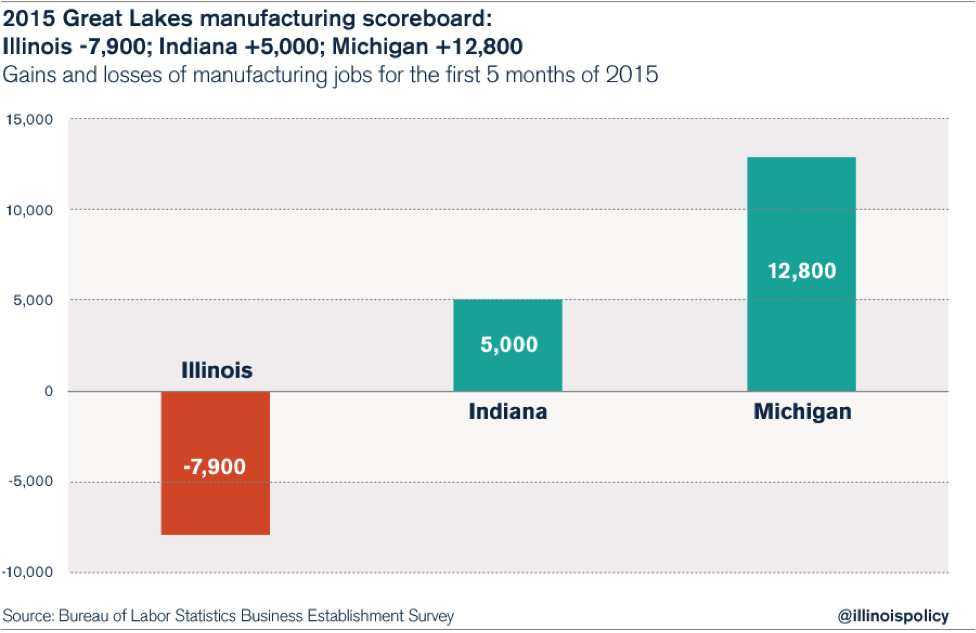Black men hit hardest by Illinois’ manufacturing losses
For inner-city families without the luxury of a private education, an Illinois manufacturing job is and always has been the first rung up the economic ladder.
A study released June 9 by Pew Charitable Trusts points to the loss of factory jobs as a major cause of the unemployment problems faced in black communities, especially among black men.
This tragedy is playing out with particular harshness in the Land of Lincoln, where the loss of factory jobs is translating into fewer ways for black families to climb the ladder of economic opportunity. In fact, according to the Illinois Department of Employment Security, less than half of all adult black men in Illinois are working, compared with 74 percent of Hispanic men and 67 percent of white men.
As opportunities evaporate for blacks in cities like Chicago, the long-term migration trend of blacks moving from the South to the North is reversing. During the Great Migration – the massive move of blacks from the agricultural South to the industrial North – Illinois was a destination state. According to the Encyclopedia of Chicago, there were 7 million blacks who moved from the South to the North between 1916 and 1970, and a full 500,000 of them settled in Chicago. They filled the city’s burgeoning factories and packinghouses, and found a brighter American dream in Chicago than what they left behind in the Jim Crow South.
But now the Great Migration has reversed. As of the 2010 census, 57 percent of the nation’s African Americans live in the South, a larger percentage than at any time in the last 50 years. Working-class blacks are moving from the North back to the South, once again in search of opportunity. BET News points to the fact that it’s becoming more difficult for blacks to find jobs in Northern cities, while the South offers a lower cost of living, lighter taxation and more jobs.
This is nothing surprising in Illinois, where black men face worse prospects than in almost any other state in the nation. While Southern states are growing their manufacturing bases, Illinois continues to lose factory jobs. Since 2000, Illinois’ policy-abused manufacturing sector has shed 300,000 factory jobs, while white-collar industries have experienced moderate jobs growth.
Illinois cities have become deeply riddled with pockets of poverty, especially in minority communities. It is important to remember that the solution for Illinois’ future can be found in the state’s past. Illinois used to provide the economic opportunities needed by blacks fleeing from the Jim Crow South. Those opportunities were in steel mills and plastics factories; Caterpillar plants and John Deere facilities.
Many of those opportunities have since been snuffed out. And in Illinois in particular, factory losses are being driven by policy errors. While Indiana and Michigan are in the midst of a manufacturing renaissance, Illinois is losing thousands of manufacturing jobs per month. And every factory job that is lost is one more rung knocked out of the ladder of opportunity for working-class families. Just in the first five months of 2015, Illinois factory jobs are down by 7,900, while Indiana and Michigan are each on their way to another banner year. Indiana is up 5,000 factory jobs and Michigan is up 12,800 since the turn of the new year.
There is no solution to Illinois’ inner-city poverty problems without economic growth. For inner-city families without the luxury of a private education, an Illinois manufacturing job is and always has been the first rung up the economic ladder. That’s why economic reforms to encourage manufacturing are so critical. Workers’ compensation reform, a property-tax freeze and lawsuit reform; which are all a part of Gov. Bruce Rauner’s Turnaround Agenda, are leading issues for repairing the state’s manufacturing sector.
If the Illinois General Assembly refuses to enact the legislative reforms necessary to get Illinois’ factories churning again, then that refusal should be called out for exactly what it is: the conscious decision to remove hundreds of thousands of rungs from the ladder of opportunity that working-class black families were once able to reach for and climb up.
A refusal to enact reform is an acceptance of the status quo: a condition where thousands of factory jobs are lost every month, leaving thousands of families without hope – their heads down on hard luck, instead of their eyes up in search of opportunity.



